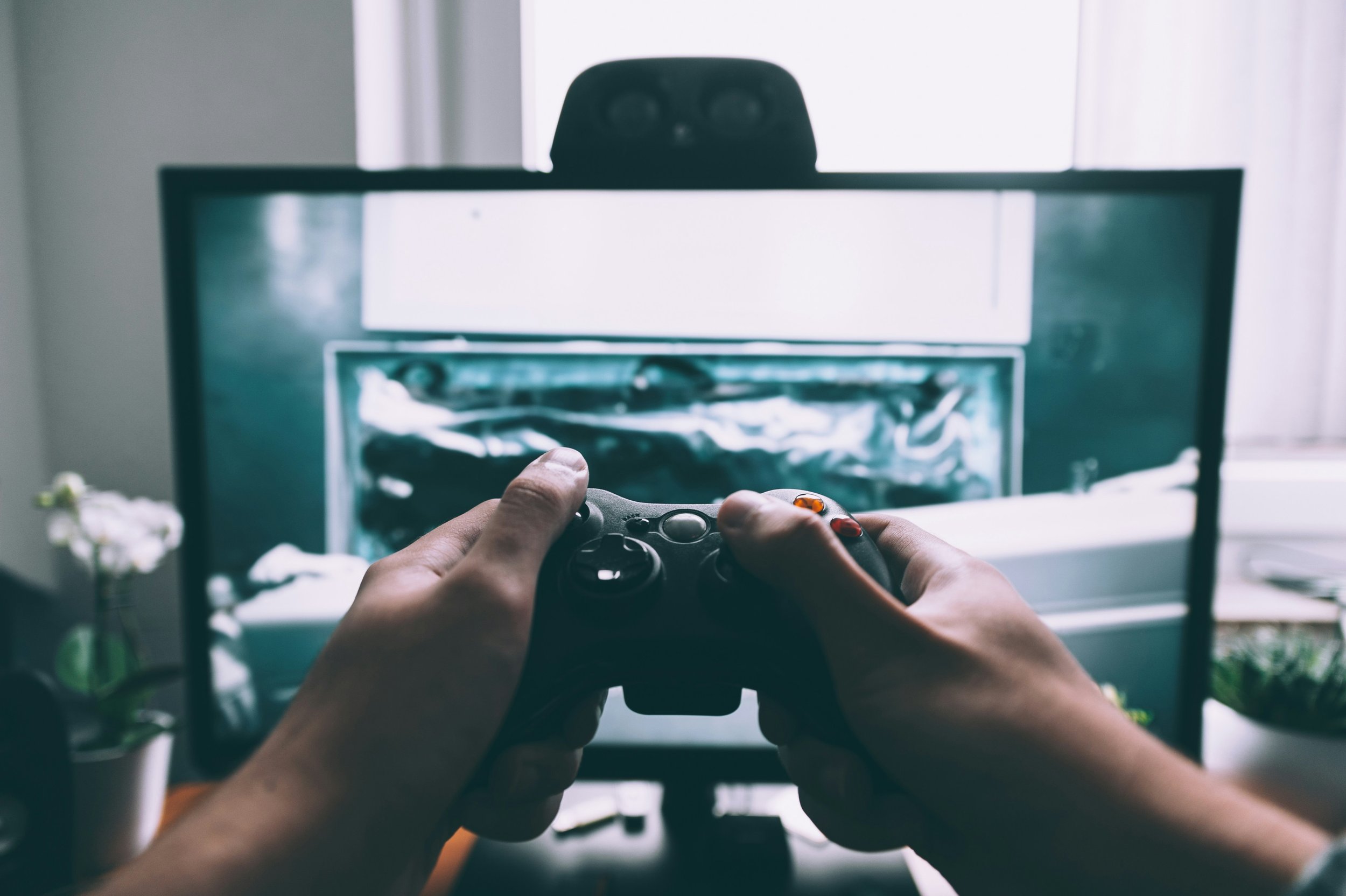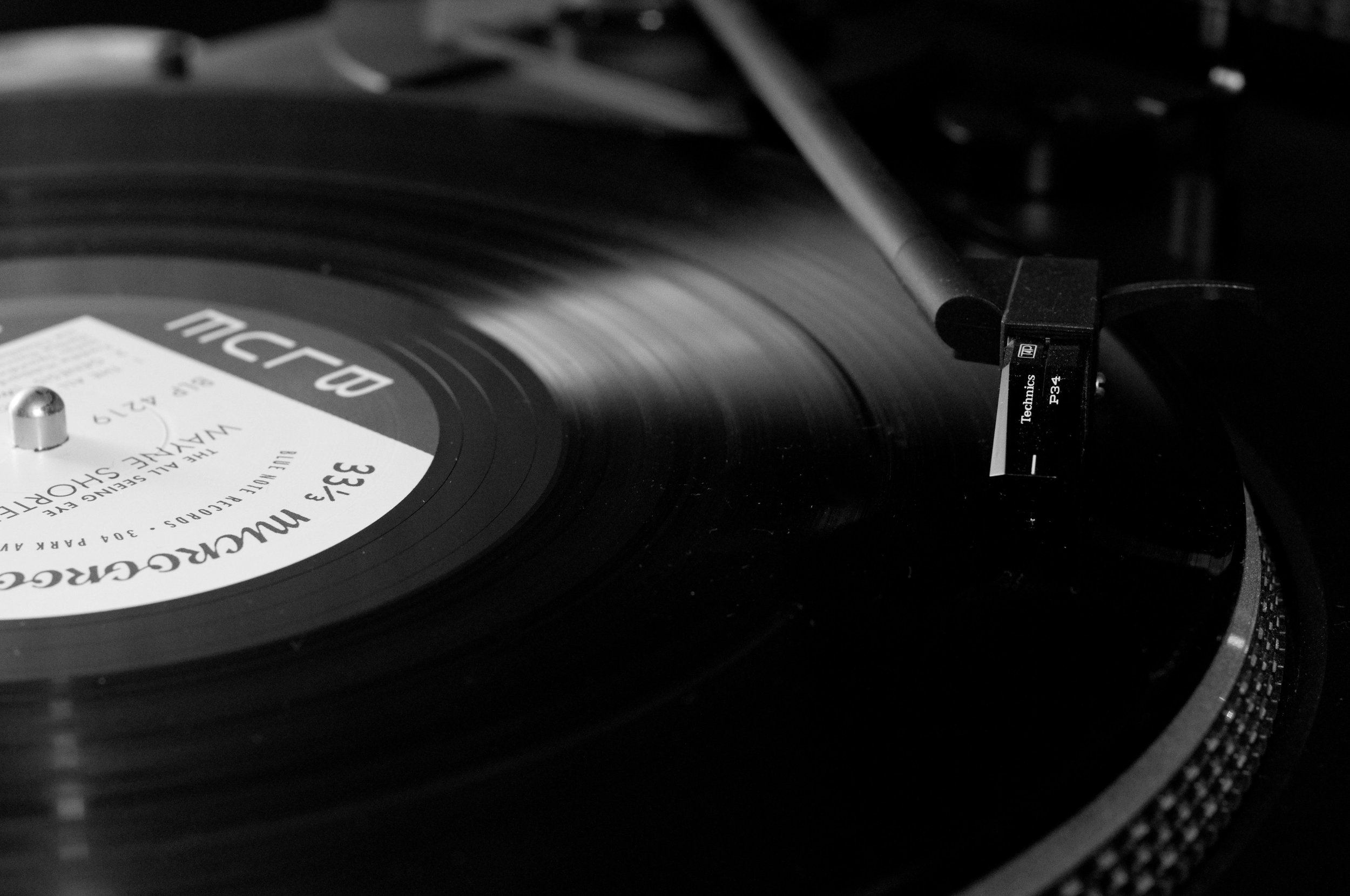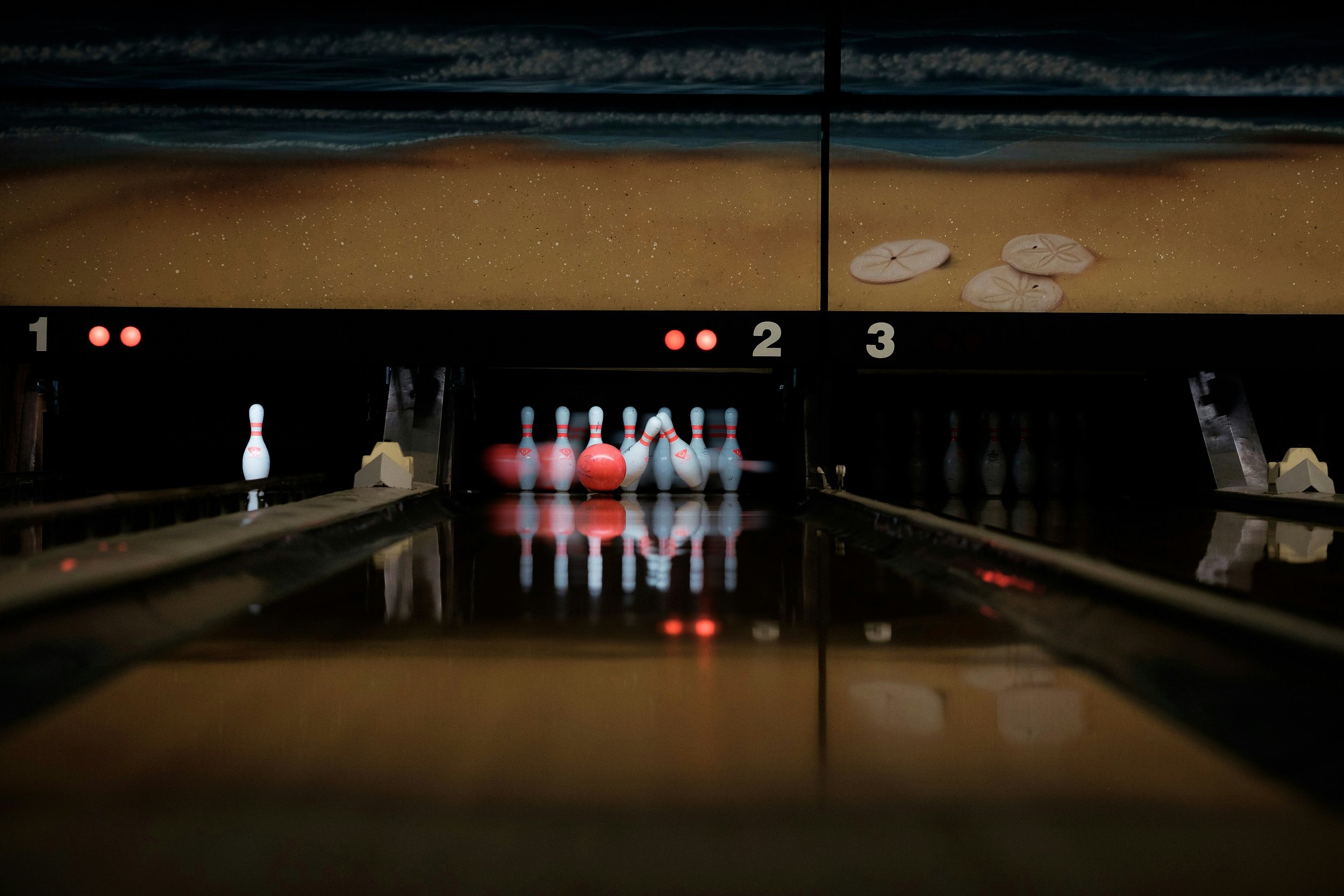Photo by Jeremy Vessey on Unsplash
A dead bear was sprawled on the floor between the sofa and the fireplace. Standing outside in the garden, Philip could see it through the sliding glass doors. He wondered whether the bear was dead or quietly sleeping, stretched out drunkenly, with one of its paws draped over an ottoman.
After some time, Philip cautiously tapped on the glass. The bear didn’t stir, so he tapped a little louder. Still nothing. He banged on the glass. Philip walked over to the kitchen window, prying it open slightly, and shout-whispered through it, “Hey! Hello! Are you alive, bear? I’ve been driving a long time and I’d like to lie down in my cabin.”
Silence.
“Goddamnit,” he muttered to himself. “Hello! Hey! Rawrl!”
Philip returned to the sliding glass doors and cautiously entered the cabin through the living room. He tiptoed to the hallway and, crouching in the closet, threw an umbrella at the bear, ready to hide or dart away. The bumbershoot struck the bear with an antique clack on its furry front legs. Philip held his breath. Now it just looked like the bear was holding an umbrella, he noticed, as if it were napping after a slightly taxing jaunt in the rain. Holding his breath, Philip threw a solid paperweight from the end table, thumping the bear dully on its savage snout.
Nothing.
Finally Philip stood up, his middle-aged knees popping, and exhaled faintly. The bear was clearly dead. Instinct kept Philip from approaching the section of living room where it lay recumbent, but the rest of the cabin was deemed safe to use. He went about his business, leaving the bear to relax beside the sofa. Now that he wasn’t focused solely on survival, Philip could pour himself a strong drink and fall back securely into his fixed melancholia.
Two years ago, his daughter, Sophia, was killed one night while walking home to her New York apartment. The police chalked the incident up to an unfortunate, if straightforward, mugging. Her wallet was missing, as was her watch, a couple of rings, and a large, metal ballerina figurine that she usually wore around her neck as a pendant. The ballerina necklace had been a present from Philip when she was a girl.
He put on some light music in the main room and spent his evening in the cabin bedroom with the door locked. His therapist had recommended he come here for a stay. “You might find it restorative.”
Phillip pulled some books that he hadn’t seen in a long time off of the shelf and sat down on the bed. They were all ‘classics’ from his collection, written by the masters, American and Russian mostly. He thumbed through Twain, Hemingway, and Steinbeck, through Tolstoy, Nabokov, and Chekhov. It was a veritable university curriculum of reading material, a student’s facsimile of an author’s bookshelf. He started in seriously on Fitzgerald’s Tender is the Night, but his attention flittered.
After paying only half a mind to the domestic problems of the affluent Divers in Fitzgerald’s novel, Philip switched to Cannery Row, and then In Our Time. What had stimulated him as a young man now just struck him as monochromatic and frustrating. The words jabbed at him like sharpened graphite, a reminder of his recent inability to cogently put words down on the page.
Once a well-respected author, Philip’s writing quickly dried up after Sophia’s passing. Writing just angered him now, a heartless task to waste time and distract the mind from more pressing truths. The problem had spread, like a creeping vine, to the point where he could no longer even read without feeling upset.
He threw the books onto the floor. The sudden thud reverberated loudly around the hollow cabin. Philip quickly looked toward the door, listening intently. But if the bear heard the noise, it wasn’t responding.
Philip lay back on the bedspread with a sigh. What am I going to do with myself? he wondered.
“Tell me a story,” Sophia would say. She knew her father didn’t like regaling people with stories, since he was paid to do it for a living. She’d look at him knowingly when guests at dinner parties asked him for just a sample, a juicy tidbit from his next novel or story. He didn’t want to give anything away. It felt stolen.
But for Sophia, Philip would always make up a story on demand. It seemed only natural after tucking her into bed when she was little. And as she got older and went off to sleep-away camp, he would slip a little handwritten tale or two into her backpack for her to find later.
If she were here, he was afraid, Sophia would find him disappointing in his present state.
“I’ve got nothing anymore, Sweetheart,” Philip muttered to the ceiling.
Oh, enough already. He needed to stop thinking about Sophia, about what she would do or say to him. It wasn’t helping, always imagining her reactions. She wasn’t there. There was no judgment she could pass. He’d have to loathe himself enough for the both of them.
He got up and gathered the classics from the floor. Going into the bathroom, Phillip carefully removed the cap from a bottle of liquid shampoo and poured its contents all over the pages of the books. Then he filled the bathtub and chucked the books into the water with a satisfying plop.
Look at the masters now, he thought. They’re all wet.
Philip slept poorly. He imagined floorboards creaking under the weight of something massive and inhuman, scratches on the wood made by knife-like claws. All the rationality in the world couldn’t convince Philip that the bear would not suddenly wake in the middle of the night and gobble him up.
He remembered how, as a little girl, Sophia was always afraid of monsters under the bed, monsters in the closet, monsters in the hallway, or within picture frames. She insisted on having daddy sit with her as she fell asleep.
Now in bed, Philip prayed desperately that she would return the favor. He trained Sophia to fall asleep on her own by rewarding her each new morning with a shiny Eisenhower silver dollar. She collected them very seriously, cleaning and sorting them in a leather coin-binder, never spending one. And then came the day when she didn’t need him anymore, and her coin collection remained on the shelf.
But he needed her. Philip was so scared in his bed now, worrying himself into a state of near hysteria. Amidst the spasms of paranoia and loneliness, he suddenly felt zapped of all strength. Sweaty and exhausted, he at last fell into a shaky sleep.
He saw Sophia again. She wore a beautiful red dress. She wanted Philip to tell her a story. But his mouth felt numb, stuffed with cotton balls, his head dangling backwards uncomfortably, like a bowling ball attached to his neck. With enormous effort, he raised his heavy head, only to see a man holding a knife to Sophia’s neck.
Philip couldn’t see beneath the brim of the man’s hat, his face bathed in shadow, but he was huge. Sophia gave up her wallet and watch. The mugger tried to pull the rings off of her fingers and Philip saw the paws, long claws tearing the rings and fingers off her hands. The beast ripped Sophia’s metal ballerina necklace off of her neck with a sickening crack, and her head drooped back, hanging heavily between her shoulders.
Philip sprang up in bed with a fearful roar, and then held himself perfectly still, hoping his yell hadn’t raised the bear from its fatal slumber in the living room. After waiting in silence for a while, Philip slowly sank back into his sheets. But something was taking up most of the blankets.
Philip rolled over, saw the bear covering a large portion of the bed. It was sleeping, as it always was. But now the beast was dreaming. He could see its snout twitching, its paws fondling the air at its sides. The bear was murmuring, a sort of dog’s whimper, as it cried out softly. Philip wasn’t the only one in bed with nightmares.
The bear grabbed him by the chest, still asleep, and he gently patted its downy arm and shoulder.
“It’s okay, bear,” he cooed gently. “It’s just a dream. Wake up.”
The bear suddenly sat up in bed, flinging its eyes open as it screamed in terror. Its claws seized up involuntarily, piercing Philip’s chest and tearing him in two with one swift, reflexive yank. Philip slouched forward, his innards spilling across the sheets.
Philip woke up again in a panic. How many more nightmares would there be?
The next morning, as he sat in the kitchen eating Corn Puffs and dry toast, Philip felt like he’d aged twenty years. His bleary eyes couldn’t focus on the small print of the newspaper in front of him. One finger nervously rubbed his upper-lip, worrying a bald patch into his graying mustache. He poured a swig of whiskey into his cereal bowl and another spray into his coffee.
Philip yawned, scratching his stubbly chin, and went to retrieve his glasses from the living room. Walking swiftly to the coffee table, he didn’t look directly at the horizontal bear, and slipped the glasses onto his face. Straightening up with a stiff groan, his focus was drawn through the glass sliding doors to the front garden, where a small bear was standing, staring in at him.
“AUGH!” Philip yelped, before slapping a hand over his mouth. He stood unmoving, a Grecian statue surveying the small bear, trying to recall if you were supposed to maintain steady eye contact with a bear, or never look one in the eyes.
It was a cub most probably. It didn’t move or indicate any plan of action. It just seemed to stare blankly through the glass at Philip. Eventually it took a step closer to the sliding door and craned its head to the side, as if to get a better view of the larger bear still hidden halfway behind the sofa.
Philip took this opportunity to slowly back away, until he was standing out of sight in the corridor. He rushed to the closet and pulled an old hunting rifle down from the top shelf. Still dressed in bathrobe and slippers, he returned to the end of the hall and cautiously poked his head around the corner.
The little bear was in the living room.
Somehow it had opened the sliding glass doors and was now standing over the dead bear, contemplating it quietly. Its toes absentmindedly kneaded the carpet. From the hall, Philip cocked and aimed the rifle, causing the bear to look up into the dark eyes of the twin barrels, sensing the threat. The cub met Philip’s nervous gaze, its furry expression unreadable.
They stood frozen in their positions, a standoff between man and beast, childless parent and parentless child. Philip’s tense grip began to shake the gun as his resolve fluttered, fearful and fascinated by the steely creature standing before him. Sweat glistened at his temples.
Sophia entered his mind again. He tried to respectfully move her aside, but she was a permanent fixture. A random memory crowded his thoughts: She was in high school and they were discussing Schrödinger's cat for her physics class.
“I think I get it. The cat in the sealed box is both dead and alive at the same time,” she was saying. “It’s in a state of probability where it could be both, but we don’t know for sure until we look inside the box,” she explained. “Right?”
“Yes. Without an outside perspective, the cat is in flux. But once we look inside the box, we know it’s dead. Or we know it’s alive. We’ve reduced it to one option.”
“Uh-huh. The way we view things can affect their outcomes. So… In that case, if we don’t ever look in a coffin, is the person inside both dead and alive?”
No, the person is dead. Philip’s eye twitched from a bead of perspiration. It’s been two years. He gritted his teeth. Don’t do this now. The rifle felt so heavy. Philip let out a woeful moan and the bear reared up on its hind legs at the sudden noise.
“Sorry, sorry,” he said softly to the cub. “You know how it is. I just… It’s been difficult.” Philip looked into the bear’s shiny dark eyes. “I don’t want to forget her. But I don’t always want to have to think about her.” The bear let out a short growl, maybe a snort or a sneeze.
Philip slowly lowered his rifle. The bear seemed to nod its head, gradually dropping down to all fours. Then it lumbered back out to the garden, pushing the sliding door closed behind it with a protracted claw. The cub trailed off beyond the tree line and disappeared from sight.
Philip stood slack-jawed in front of the glass. He eventually looked down at the dead bear on his living room floor. It definitely wasn’t sleeping; a sense of reason returned. He placed a hand on the soft fur of the animal. It was silly leaving it here. He would call someone to take it away this afternoon.
While touching it, Philip noticed the fur seemed awfully well groomed. This bear hadn’t been shot, stabbed, or clawed to death. Puzzled, he poked around the bear. The animal appeared completely undisturbed. Philip poured himself another cup of coffee, and another bowl of cereal while he was at it, sans whiskey this time. He sat on a kitchen stool, chewing and staring at the bear.
Suddenly a whole corn puff, dry and scratchy, caught in his throat, cutting off his air intake. He coughed. It was lodged in there good. As he choked, an epiphany occurred to him, and he tried running in two directions at once, trying to relieve his curiosity in one direction and his choking in the other. He ran behind his stool and did a high jump into a belly flop on the backrest, knocking the wind and the corn puff right out of him.
Philip rolled onto the floor, gasping and clutching his throbbing stomach and ribs. When he could breath properly again, he stood up and hobbled over to the bear to solve his riddle. Gingerly, he placed his bare hands on the upper and lower parts of the bear’s menacing jaw and pulled the mouth open, praying one last time that this bear was well and truly dead. Sticking his face up to the bear’s mouth, nearly gagging on the terrible smell, he peered into the throat and, sure enough, saw something lodged deep inside.
Regretting it almost immediately, Philip stuck his hand down the bear’s slimy gullet, suppressing the urge to retch, and felt for the object. His hand finally closed around a hard, oddly shaped trinket and, with some acute twisting and maneuvering, managed to pull it out.
He opened his fist and saw, lying in his slick palm, a metal ballerina figurine, connected to a severed necklace chain.
Surprise stung at his eyes. Philip turned the wet object over in his hands, endlessly curious. He knew he would never get over Sophia. But like someone who loses a limb, he would slowly have to adjust to life without her. He exhaled shakily.
Philip walked to the kitchen and cleaned the ballerina in the sink, watching the cool stream wash over the metal dancer as his mind wandered. Then he took a pad of paper and a yellow pencil from the coffee table and, for the first time in almost two years, began to write.
“A dead bear was sprawled on the floor,” he scribbled. He looked over his handiwork. Then he stood up. That’s enough for now, he thought. Rome wasn’t built in a day. He put on some sturdy boots and went out to the garden.
Yaki Margulies is a writer, comedian, and musician, from Seattle, WA, now living in Los Angeles, CA. His writing has previously appeared in Word Riot, Flash Fiction Magazine, The Jewish Journal, and other publications.










